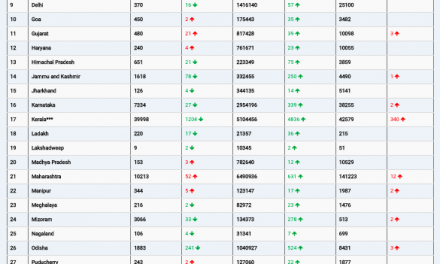Recent research has shed new light on the genetic underpinnings of coffee consumption and its potential health impacts, revealing a complex interplay between genetics, behavior, and health outcomes.
A collaborative study led by researchers from the University of California San Diego and Western University in Ontario utilized extensive genetic and survey data to investigate the genetic basis of coffee consumption habits. Published in the journal Neuropsychopharmacology, the study analyzed data from over 130,000 participants in the U.S.-based 23andMe database and compared it with records from 334,000 individuals in the UK Biobank.
Dr. Sandra Sanchez-Roige, an associate professor at UC San Diego, highlighted that coffee drinking is influenced by genetic factors, making it a heritable trait. “We found statistical evidence that specific genetic variants inherited from parents influence an individual’s likelihood of consuming coffee,” she explained.
The study, spearheaded by Dr. Hayley H. A. Thorpe from Western University, employed a genome-wide association study (GWAS) to identify genetic regions associated with coffee intake. “Our goal was to understand the genetic basis of coffee consumption and its potential implications for health,” Dr. Thorpe stated.
However, the research team encountered surprising findings when linking coffee consumption genetics to health outcomes. “We observed consistent positive genetic associations between coffee consumption and conditions like obesity and substance use disorders,” Dr. Thorpe noted. These associations were pronounced in the U.S.-based cohort but exhibited contrasting patterns in the UK Biobank dataset, particularly regarding psychiatric conditions.
Dr. Abraham Palmer from UC San Diego emphasized that while genetics play a significant role in determining coffee intake, environmental factors and cultural norms also shape consumption patterns. “Unlike traits such as height, coffee consumption is influenced by individual choices and environmental influences,” he explained.
The study’s findings underscore the complexity of interpreting genetic data in relation to lifestyle behaviors and health outcomes. “Our research highlights the need for further investigation into how genetic predispositions interact with environmental factors,” Dr. Sanchez-Roige added.
The study’s multidisciplinary approach involved researchers from multiple institutions globally, reflecting a concerted effort to unravel the intricate relationship between genetics, behavior, and health. Moving forward, the team plans to expand their investigations beyond coffee to explore broader substance-use issues.
The study was supported by grants from institutions including the National Institutes of Health (NIH) and the California Tobacco-Related Disease Research Program (TRDRP), underscoring its broad impact on understanding health behaviors and genetic influences.
As coffee remains a popular beverage worldwide, the study’s insights into its genetic foundations and health implications are poised to inform future research and public health strategies.
This collaborative effort underscores the ongoing quest to decipher the complex interplay between genetics, lifestyle choices, and health outcomes in modern society.












